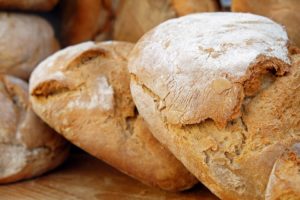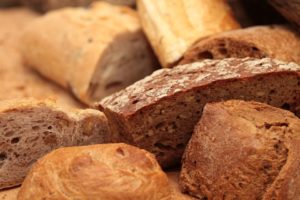Contents
If you’re looking to get started with baking, you probably already know the benefits of baking.
But just in case you are unclear or you just basically letting your emotions get the better of you or you’re thinking that this is a good idea because others are doing it, here’s a quick breakdown of why you should consider baking.

Well, when you’re baking, you just focus on what’s taking shape in front of you. It allows you to be in the moment and this relieves a tremendous amount of stress.
Another great benefit of baking is that you go through this process and there is something that you can eat at the end of the process. It’s something that you can directly experience. You can see the results of all your hard work and time investment.
This is not always the case with a lot of the other work that you do on a typical 24-hour day. In fact, I would argue that the vast majority of the things that you, really don’t end with a very concrete sense of accomplishment because it doesn’t lead to a physical tangible product that you can see, hear, touch, taste, and smell.
In other words, when you’re baking, you engage all your senses. The item that you created is undeniable. It actually exists and this gives you a tremendous sense of accomplishment.
Finally, when you bake you actually engage your technical side as well as your creative side. Let’s get one thing clear, baking is very precise.
If you don’t pay close attention to temperature settings or if you mix the ingredients wrong or worse yet, you pick the wrong ingredients, the chemistry would be off. And if the chemistry is off or the temperature is off, you’re not going to get the very best part.
In fact, in many cases, you’re going to fail outright.
Accordingly, your level of competence goes up because not only do you learn how to follow instructions, but you learn how to tweak and make the necessary adjustments so you can hit the formula the right away the right time every single time. That takes quite a bit of practice.
Here’s a short and fun video to get you started:
And most importantly, your creative juices come in because you’re presented with all these little tweaks or opportunities for improvement. This taps into your unlimited resource of creativity, ingenuity, and versatility.
Now that you have a clear idea of why you should be baking, let’s get down to business. What are the basics of baking?
 Baking Is Science
Baking Is Science
If you wanted to summarize baking into one simple formula or one simple easy-to-understand summary, it can really all be boil down to one word- SCIENCE.
Because if you do not think in a scientific way, baking is going to be an ordeal for you. It’s going to suck because the science is precise.
Science is built on the foundation of Math. The good news is, we don’t have to worry about that. As long as you understand the science involved, you are good to go as far as your baking adventures go.
So, what science-based considerations should you pay close attention to when you are baking? Well, you can reduce the basics of baking to the following.
1. Temperature
It’s very important to be mindful of your room temperature and the temperature of the equipment that you are using to bake the item that you are trying to create. That’s the bottom line.
There’s a big difference between the two. So, you have to know what the base temperature you are working with so you can make adjustments to the ingredients that you’re using accordingly.
If you are in a high-temperature part of the world, then you might want to work with your ingredients in a certain way. If you are in a cold area of the world, then you might want to have a different set of adjustments.
2. Measurements
As I mentioned earlier, baking is Science and Mathematics is the foundation of it. Well, this is where the little bit of math comes in because you have to measure ingredients precisely.
The big difference between a chocolate chip cookie that turned out amazing and a chocolate chip cookie that breaks down in your hand is simply measurement for the most part. The ingredients simply aren’t present in the right ratio that’s why you have the problem that you have.
3. Understand The Specific Nature Of The Ingredients You’re Using
Whether you’re using butter, sugar or baking soda, understand their basic nature. Understand how they’re supposed to react. What are they supposed to taste like? What are they supposed to do?
By having a clear understanding of this, you would be able to piece all the ingredients together in such a way that you maximize their inherent qualities.
The problem with a lot of bakers, whether professional or newbie bakers, is that they assume that if they just have the right ingredients that they’re good to go.
Well, the problem is, there might be too much of that ingredient or you introduce that ingredient too early or too late in the baking process and you end up with a disaster.
4. Proper Sequencing
There many ways to describe a baking recipe. Most people would think that it’s just a set of instructions. However, people who understand the essence of baking as Science clearly see that the recipe really is a sequence.
Just like making metal or when you are creating chemicals in the lab, you have to follow a proper sequence. Otherwise, you’re going to have a disaster on your hands.
Either stuff is going to blow up in your face or things are going to heat up so quickly that the finished product is unusable.
Whatever the case may be, you will have a mess on your hands because you did not follow the proper sequence. That’s what a baking recipe is.
It’s really the sequence of the ingredients to unlock their chemical properties and apply the necessary heat the right way for the right duration so you can end up with the baked goodies that you are looking for.
If you’re into baking cakes, you might find these tips useful:
5. Other Considerations
Proper measurement, of course, involves proper weighing at the proper temperatures. Knowing your ingredients involves understanding how to store them and how to introduce them to other ingredients.
So, the key here really is science. This is what separates baking from cooking.
With cooking, you have a lot more to wiggle room. There’s a lot more space to hide with cooking, not so with baking. Either you blow it or you make you barely make it or you do an amazing job.
There’s a little error tolerance when it comes to baking. Understand all of these concepts and you should be good to go. Especially after you get the right equipment so you can bake your heart away.
 Baking Is Science
Baking Is Science